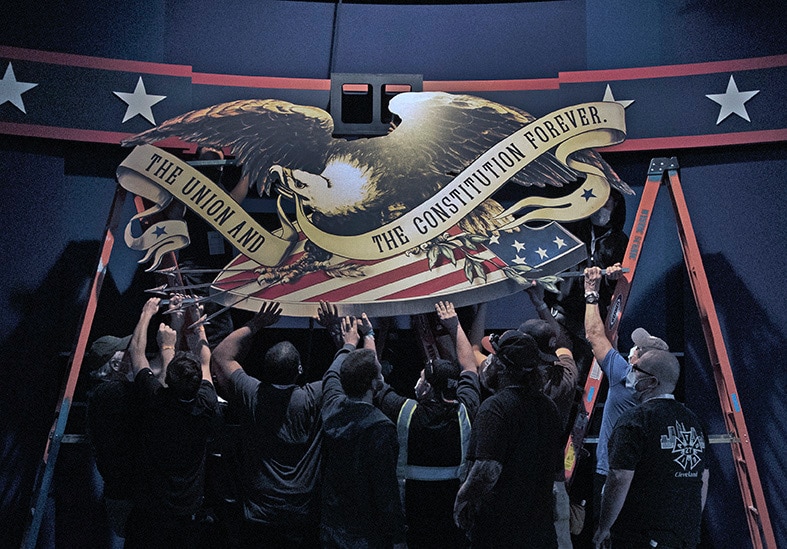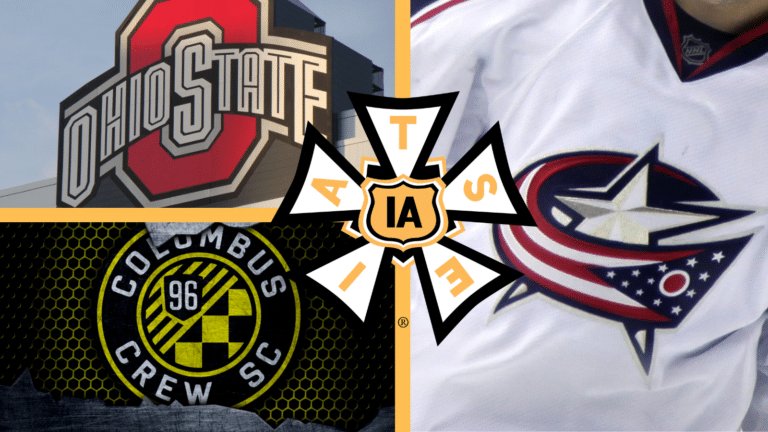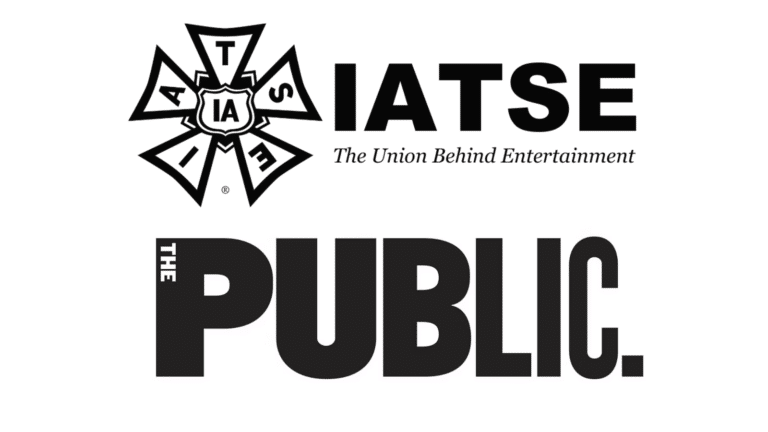Washington, DC – International President Matthew Loeb spoke Tuesday to a high level government panel of administration officials about the importance of protecting those employed in the motion picture, television and sound recordings industry from digital theft and counterfeiting.The panel, led by Vice President Joe Biden, included Attorney General Eric Holder, Secretary of Homeland Security Janet Napolitano, Commerce Secretary Gary Locke, FBI Director Robert Mueller, US Secret Service Director Mark Sullivan, US Patent and Trademark Office Director David Kappos, White House Senior Advisor Valerie Jarrett, and newly appointed Intellectual Property Enforcement Coordinator Victoria Espinel. Also present were executives of several major studios, broadcast networks, record labels, and publishing houses.
President Loeb spoke on behalf of the IATSE, and other labor representatives attending, including Taylor Hackford, president of the DGA; David White, National Executive Director of SAG, and AFTRA National Executive Director Kim Roberts Hedgpeth.
President Loeb said, “In the simplest terms, illegal downloading and counterfeiting of motion picture and television product is stealing. It is not always properly viewed as such, and a cultural change in the way this activity is perceived, and how it is dealt with, is crucial. Our fellow union members in the music business have already suffered the loss of income as well as funding for their health and pension benefits as a result of illegal downloading and counterfeiting of sound recordings.”He added, “The digital revolution shifted the way the product we create, through the toils of our members, is delivered. If intellectual property can be protected from the insidious threat posed by digital theft and counterfeiting, the Internet can become the vehicle for innovation, creation, ingenuity and job growth, instead of the undoing of a vital domestic industry.”
“This is wholly dependent upon the creation and implementation of regulations, laws and programs to prevent, deter and enforce against the crime of digital theft.The round table discussion, the first of its kind, emphasizes the Obama administration’s commitment to combat piracy amid rapidly changing technology.”
The complete text of President Loeb’s remarks follows:
Mr. Vice President and distinguished members of the Cabinet and Agencies: My name is Matthew Loeb, and I am the International President of The International Alliance of Theatrical Stage Employees, AFL-CIO, representing better than 110,000 “behind the scenes” technicians and artisans in the entertainment industry. I have been asked to provide you information on the effect that theft of intellectual property has on those in our business who work on and create motion pictures and television shows. In so doing, I also speak on behalf of my colleagues, Taylor Hackford – President of the Director’s Guild of America; Kim Roberts Hedgpeth – National Executive Director of the American Federation of Television and Radio Artists; and David White – National Executive Director of the Screen Actors Guild, who are my partners in our efforts in this fight and are here with me today.
Together they represent an additional 200,000 directors, actors and sound recording artists.I would like to offer our deepest appreciation for being given the opportunity to share our views on these issues that are so critical to the economic security of our members specifically, but to all motion picture and television workers.We embrace the notion that the Internet has the potential to foster growth and increase employment in the motion picture and television industry. But this is only true if content is adequately protected. Compensation remains the impetus for creation and innovation in this business, a business that relies heavily on downstream revenue from exploitation of its product in secondary and export markets after initial distribution on television or in a movie theater. It is these markets that are at the greatest risk of erosion through the digital theft and distribution of motion pictures and television programming.In the movie business employment, for most, is intermittent and those who work and create in our industry share the risk with our employers and investors.
We are employed, the picture is produced, and our work ends. The Unions and Guilds have been able to bargain contracts that address these intermittent work patterns by attaching to the downstream revenue to provide income between productions, and to fund health and retirement plans. This means that each time a picture or television program is stolen, the revenue that would flow to benefit these workers is lost. But it also places tremendous pressure on the bargaining process, because the challenges to provide fair compensation to our members and adequate funding to our health and pension plans are compounded.Worse still is the fact that unless our employers have an expectation of recouping their investment and making a profit, there is no motivation for further investment. Ingenuity, innovation and job creation are stifled.
The conversation shifts from the tremendous prospects and opportunities for motion picture and television workers in a digital global economy, to a bleak discussion on the fate of creators, performers, technicians and support personnel.The motion picture industry employs an estimated 2.4 million workers in the U.S. They are mainly middle class, and many work for small businesses that support the industry wherever productions take place. They work for caterers, prop shops, scenery suppliers, wardrobe shops and equipment rental companies. Add to that the ancillary businesses like dry cleaners, hotels, restaurants, hardware stores lumber yards and many others that employ workers supporting the industry.
Along with those employed directly by motion picture and television producers, the jobs these businesses create are meaningful contributors to economic viability in cities throughout the country because production takes place everywhere in the United States. More than $41 billion is paid in wages annually (and taxed!). This provides significant economic stimulus in production centers like Detroit, Shreveport, Atlanta, Boston, Albuquerque, Chicago and others, in addition to traditional production hubs like New York and Los Angeles.Our industry is, as I have noted, a great economic engine of our country’s economy—one that we must keep strong. But we –and those who work in our business— create something else that should not be lost in this discussion. The abstract words “intellectual property” do not capture what makes us unique. For we are in the business that is called the “magic of movies”—and that magic is the story of America and of our culture which is seen and loved by billions around the world. It is why our industry is one of the few in our country that has a competitive advantage in the global market and carries a positive trade balance.
In the simplest terms, illegal downloading and counterfeiting of motion picture and television product is stealing. It is not always properly viewed as such, and a cultural change in the way this activity is perceived, and how it is dealt with, is crucial. Our fellow union members in the music business have already suffered the loss of income as well as funding for their health and pension benefits as a result of illegal downloading and counterfeiting of sound recordings. In this great nation, a nation of laws, we would never sit by and watch trains and ships, loaded with millions of stolen DVDs or CDs (or cars or radios or refrigerators for that matter), just carry them off to the four corners of the world. The digital revolution shifted the way the product we create, through the toils of our members, is delivered. If intellectual property can be protected from the insidious threat posed by digital theft and counterfeiting, the Internet can become the vehicle for innovation, creation, ingenuity and job growth, instead of the undoing of a vital domestic industry. This is wholly dependent upon the creation and implementation of regulations, laws and programs to prevent, deter and enforce against the crime of digital theft.
We will need greater government enforcement and we will need to clearly address the technological and legal tools we must have and currently do not. Importantly, we will need a strategic plan that brings together government and private sector efforts. Some of the work that must be done requires action by the private sector, some of it, for instance as it relates to the internet service providers, requires action by both sides, and some can only be accomplished through government action.On behalf of those who work in the motion picture and television industry, we are appealing to you for your engagement on our behalf in this critical fight, and are extremely grateful to have been given this opportunity.
Thank you.











